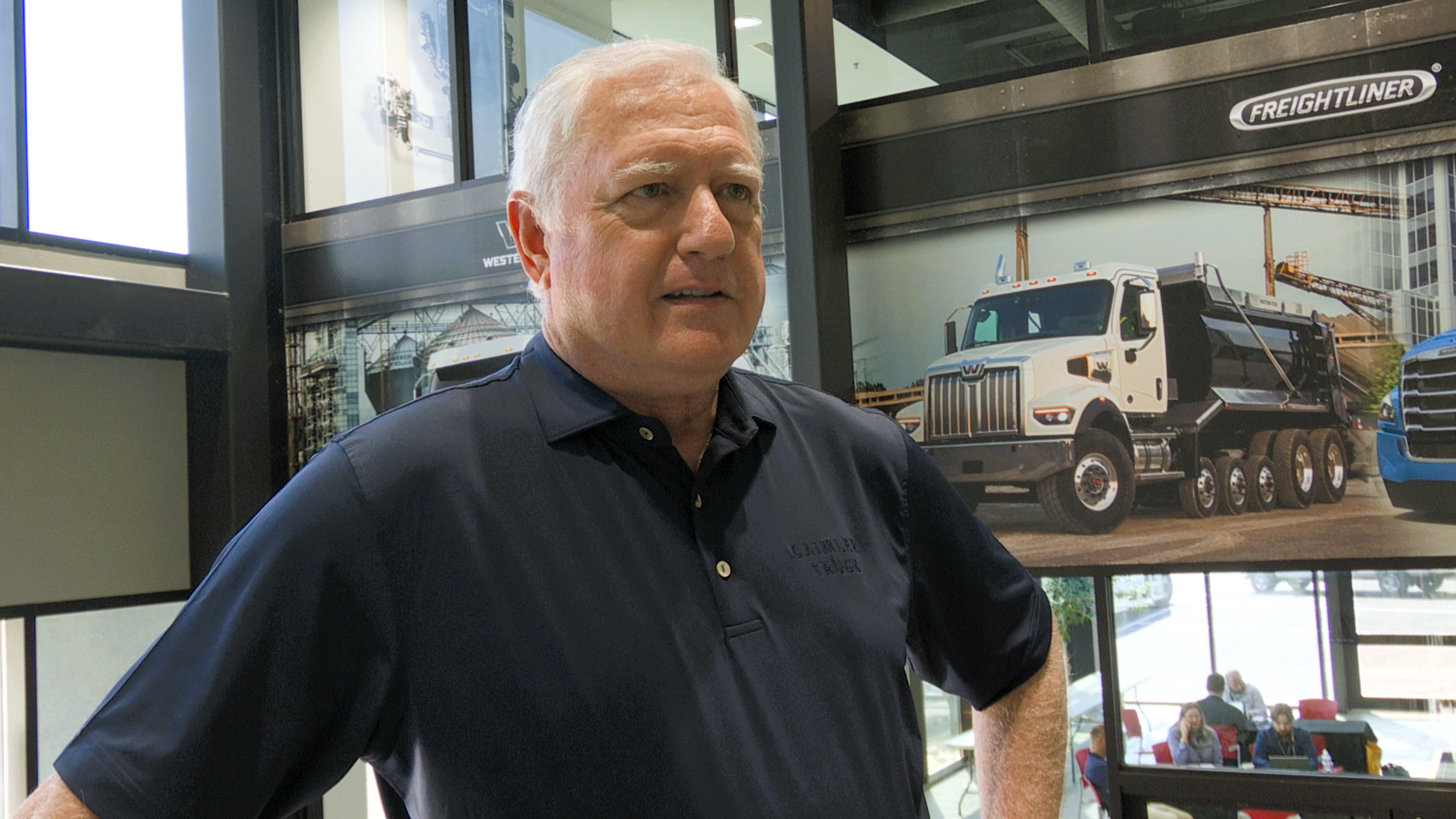
Revealed: the strategy behind Daimler’s market dominance
With a decades-long track record of market leadership, Daimler Truck North America (DTNA) is a driving force in the commercial vehicle industry. At the helm is John O’Leary, President and CEO, who has steered the company through transformation, innovation, and a fair share of challenges. In this exclusive interview with Florian Engel, Chairman of the ITOY jury, O’Leary shares the key factors behind DTNA’s enduring dominance, the strategic power of its dual-brand approach with Freightliner and Western Star, and how the company is navigating the shifting political and economic landscape in the United States – with clarity, resilience, and ambition.
John, DTNA has been the market leader in North America for years. Where does this significant success come from?
Well, you know, I think we're fortunate to have achieved success across many different segments in North America. We’ve been well-known for years for our performance in the highway segments – this includes truckload, less-than-truckload, and other freight-hauling activities. In more recent years, we’ve expanded into the vocational side. I think we’re now building a strong reputation with Western Star, which had long been more of a niche brand but is now definitely on the rise.
You just mentioned the two brands, Freightliner and Western Star. How does this strategy work?
Primarily, the Freightliner brand is recognised for its on-highway and medium-duty vocational applications. So, we cover a broad range of segments. In a good year, we sell around 200,000 vehicles in North America across a wide variety of customers. Freightliner is especially known as a fleet truck – the largest and most notable fleets in the US, such as Ryder, Penske, Schneider, and XPO, all predominantly run Freightliners. So we’re very strong in that space.
When it came to penetrating the vocational market – something that had eluded us in the past –we realised that entering with the Freightliner brand wouldn’t be effective. Its brand equity was mostly associated with highway use. We needed a distinct identity. Western Star had a strong legacy – perhaps less known in the US at the time but well-established in Canada – and a certain toughness and vocational credibility. We decided to invest in that and build it into what it is today: a strong, emerging player in the heavy-duty vocational segment.
Your success is being tested by political circumstances. How are you addressing these challenges?
You really have to focus on what you can control. There are plenty of things I wish I could influence right now, but I can’t. So, we make the best decisions we can with the information available, and we remain flexible. If things change, we can pivot. It’s important not to close off options too early. Once there's more certainty – whether in emissions policy or the economic outlook – we move quickly and decisively.
The key is to be prepared: to have scenarios already mapped out so you’re not scrambling when something shifts. And, above all, to focus daily on what we can control and execute to the highest standard. If you run a lean, highly efficient, and profitable company, you can weather a fair bit of uncertainty. I believe that’s the position we’re in right now.
“Fortune” is a fitting keyword for the final question. What do you expect from the coming years?
I believe that once we gain more clarity in the US regarding economic and emissions policy, we’ll be in a good place to help grow the economy and accelerate out of this period of uncertainty. Right now, many people are waiting on the sidelines. It’s frustrating for everyone. But once we have a clear direction – even if it’s not entirely favourable – we can move forward confidently.
Looking ahead, the future remains bright for us. We have strong products, excellent dealer representation, and loyal customers. This is a B2B business, so relationships and trust are crucial – and we have that in good measure with our key customers. That’s something we can continue to build on – no matter what’s happening with tariffs, emissions, or other external factors. So yes, we just need to keep executing and be the very best we can.
Thank you very much!
